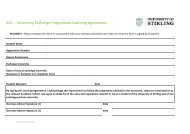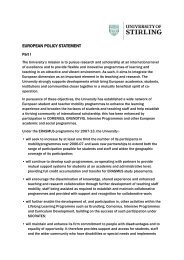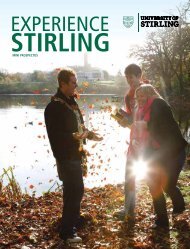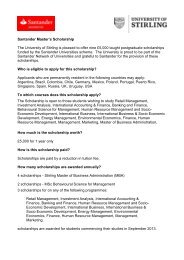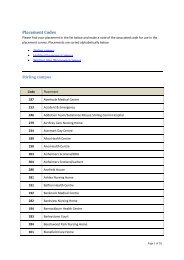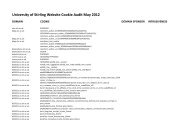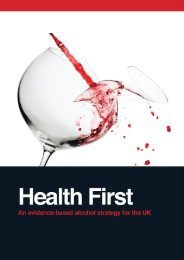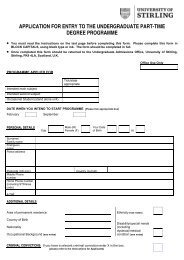Supporting a uK SucceSS Story: The impacT of - Research Councils ...
Supporting a uK SucceSS Story: The impacT of - Research Councils ...
Supporting a uK SucceSS Story: The impacT of - Research Councils ...
You also want an ePaper? Increase the reach of your titles
YUMPU automatically turns print PDFs into web optimized ePapers that Google loves.
Health and Wellbeing:<br />
Performance<br />
A common cold can cause discomfort and<br />
disrupt the lives <strong>of</strong> many <strong>of</strong> us when we are<br />
unfortunate enough to catch one, but the<br />
effects on an elite athlete could mean they<br />
are unable to train or compete and this could<br />
have serious consequences for their career.<br />
<strong>The</strong> finely tuned bodies that athletes use<br />
to compete with are just as susceptible to<br />
injury and illness, but the impact is perhaps<br />
more significant than that felt by the average<br />
person. <strong>Research</strong>ers are looking at ways in<br />
which the likelihood <strong>of</strong> injury and illness in<br />
athletes is limited, so they can compete to<br />
the best <strong>of</strong> their ability.<br />
Preventing illness and injury<br />
<strong>Research</strong> being led by the University <strong>of</strong><br />
Nottingham is looking at illness and injury in<br />
elite sport with the aim <strong>of</strong> guiding the design<br />
<strong>of</strong> interventions that can be used to reduce the<br />
impact <strong>of</strong> illness and injury on performance. Injury<br />
prevention is a key area for the International<br />
Olympic Committee (IOC) along with other<br />
international sports governing bodies. UK<br />
Sport and the English Institute <strong>of</strong> Sport see the<br />
prevention <strong>of</strong> athlete injury and illness as a way<br />
in which athletes can improve their chances <strong>of</strong><br />
success, particularly in high performance sport<br />
where the winning margins are small. In the<br />
past only a small number <strong>of</strong> sports used injury<br />
information to help shape their illness and injury<br />
prevention strategies. Since the start <strong>of</strong> this<br />
research project 43 per cent <strong>of</strong> Olympic sports<br />
have reported using injury data to help keep their<br />
squads in good health and free from injury. An<br />
average <strong>of</strong> 11 days <strong>of</strong> training and 0.4 competitive<br />
events are lost per injury and around five days <strong>of</strong><br />
training and 0.3 <strong>of</strong> competition events are lost per<br />
illness, so being able to prevent athletes picking<br />
up injuries and illnesses is an important part <strong>of</strong><br />
fielding the best team.<br />
<strong>The</strong> University <strong>of</strong> Birmingham has developed a<br />
new mobile clinical research facility called the<br />
Health <strong>Research</strong> Bus (HRB) which is setting out<br />
to transform the way that clinical research for<br />
major health issues like diabetes, obesity and<br />
ageing is carried out in the community. <strong>The</strong> bus<br />
has state-<strong>of</strong>-the-art scanning equipment and<br />
consultation rooms, which will enable scientists<br />
from the university to carry out a wide variety <strong>of</strong><br />
clinical studies, scanning programmes and health<br />
promotion activities anywhere in the region. It<br />
is about to be used by athletes competing in<br />
the London 2012 Games to monitor their bodies<br />
during training. One particular piece <strong>of</strong> technology<br />
it has on board is a dedicated DXA (Duel-energy<br />
X-ray Absorptiometry) scanner, which is used for<br />
measuring body composition and bone density.<br />
<strong>The</strong> HRB is being run through the Wellcome<br />
Clinical <strong>Research</strong> Facility and is a partnership<br />
with University Hospitals Birmingham Foundation<br />
Trust and Birmingham Children’s Hospital NHS<br />
Trust. <strong>The</strong> HRB was supported as part <strong>of</strong> the<br />
translational medicine strand <strong>of</strong> the Science City<br />
<strong>Research</strong> Alliance between the University <strong>of</strong><br />
Birmingham and the University <strong>of</strong> Warwick.<br />
“Since the start <strong>of</strong> this research project 43 per cent <strong>of</strong><br />
Olympic sports have reported using injury data to help<br />
keep their squads in good health and free from injury. ”<br />
28<br />
SECTION two : Health and Wellbeing



